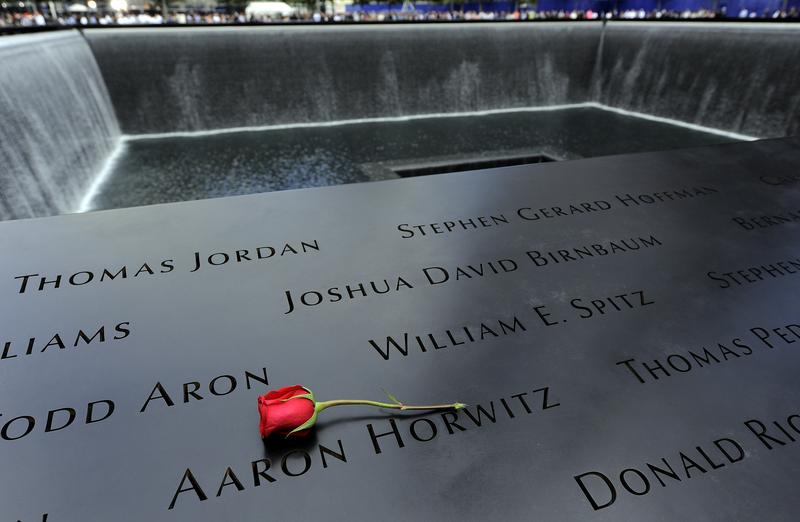[music]
Melissa Harris-Perry: I'm Melissa Harris-Perry and this is The Takeaway. This Saturday marks 20 years since the terrorist attacks of September 11th. Like so many people, I remember precisely where I was as I watched in horror as the second plane crashed into the South Tower of the World Trade Center. I was standing in the kitchen of my Chicago condo, drinking a cup of hot tea before work and rubbing my six-month pregnant belly. My eldest daughter was born just a few months later and is part of an entire generation for whom the post 911 world is the only world she's ever known.
From heightened airport security to casual Islamophobia in popular culture, to the vague realization of a bloody war being waged half a world away. Her generation experiences all of the abrupt and terrifying changes of September 11th as utterly mundane, normal. We wanted to know how you, our parents, and our teachers talk about and teach about 911 with the young people in your lives?
Ali: This is Ali from Taunton, Mass. As a history teacher, I make an effort to balance teaching about the absolute horror of that day with the horror of discrimination and loss of freedoms that many Muslim-Americans faced after that day.
Melissa Harris-Perry: Some of you have relied on your faith to guide any and all discussions about 911.
Holly Freeman: In our family, we have had numerous discussions about lack of belief. For us, 911 is just one point of entry on this very, very large complex topic. As Quakers, we try to share how the world's resources and the distribution is skewed. We also try to empathize with people in dire circumstances whose home country infrastructure and social safety nets are even more tenuous than they are here in our country.
Keeping ourselves from othering people keeps our perspectives on the strengths of those joining our citizenry. We're teaching our kids to believe that right share of our world resources ultimately helps the United States as much as foreign diplomacy and foreign aid does people in other countries. Our kids are learning to face issues with compassion and facts, not fear. This is Holly Freeman in Portland, Oregon. I listened on KOPB.
Melissa Harris-Perry: For others, you've yet to have conversations about 911 with your kids because they're dealing with just too much already.
Daniel Johnson: Hi. My name is Daniel Johnson, Brooklyn, New York. I've been trying to break this tragic moment in our history to my children. They're eight and seven years old and they saw me looking at a trailer on Netflix and two weeks ago I was looking at Spike Lee doc. I think they're not ready for that. I think it would shatter their perception of our world.
Melissa Harris-Perry: At least one of you has relied on your personal connection to that day to inform how you talk about it.
Rob Howell: Our children were 20, 15, and 10 on 911, 2001. My wife was an employee of the Port Authority of New York and New Jersey on her way to work in One World Trade Center. When the plane hit, she was late that day so she was on the path train that terminated at Exchange Place rather than in her office on the 61st floor. 11 of my wife's immediate co-workers perished. We always talked of the tragedy with firsthand knowledge of the tragedy and reverence to the dead. Rob Howell, Metuchen, New Jersey.
Melissa Harris-Perry: All right, other listeners, what about you? If you're a parent or a teacher, how do you talk to your children or your students about 911? Let us know by calling 877-869-8253. That's 877-869-8253.
[music]
Copyright © 2024 New York Public Radio. All rights reserved. Visit our website terms of use at www.wnyc.org for further information.
New York Public Radio transcripts are created on a rush deadline, often by contractors. This text may not be in its final form and may be updated or revised in the future. Accuracy and availability may vary. The authoritative record of New York Public Radio’s programming is the audio record.




